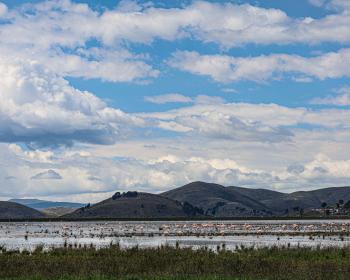November, 2024 | COP29, Baku, Azerbaijan
Statement delivered by Sheelah Bearfoot.
Madam. President and Parties.
Indigenous Peoples from the seven socio-cultural regions wish to condemn the unethical methods and even more unethical outcomes this COP has produced. There is nothing to celebrate here today. As Peoples, as Sovereign Nations, we join the several other Nations that have voiced their vehement objections to these unacceptable decisions that are continuing to destroy our planet.

